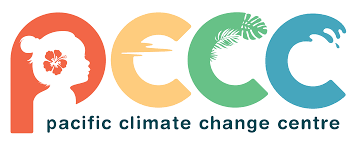An innovation by the Boloyaso No.7 Landowners Association
What is the innovation?
Boloyaso No.7 Landowners Association has developed an integrated reforestation and livelihood innovation on 44,000 hectares of customary land in Kompiam District, Enga Province. The innovation combines large-scale native species reforestation with sustainable farming enterprises such as piggery, poultry, and inland fish farming. It is a community-owned, climate-smart model that restores degraded land while providing steady income streams for landowners.
The Need for It
Environmental Need: The 44,000 hectares of land face threats of deforestation, soil erosion, and biodiversity loss. Restoring native forests is vital for carbon sequestration, water security, and ecosystem protection.
Livelihood Need: Most households in the area depend on subsistence farming with little cash income, making them vulnerable to poverty and climate shocks. Alternative sustainable livelihoods are urgently needed.
Community Need: Landowners have united to manage their land collectively. They seek an innovation that balances economic growth with environmental stewardship, while creating long-term security for future generations.
Expected Outcomes
Environmental Outcomes
- Reforestation of 44,000 hectares with native species, creating a carbon sink for climate change mitigation.
- Restoration of biodiversity habitats and ecosystem services.
- Climate resilience through soil stability, water source protection, and reduced flood risk.
Economic Outcomes
- Diversified community income from piggery, poultry, and inland fish farms linked to the reforestation project.
- Job creation for local youth and women in farming, nursery management, and forest restoration.
- Long-term revenue from carbon credit development and sustainable agricultural markets.
Social Outcomes
- Strengthened unity among landowners under Boloyaso No.7 Landowners Association.
- Empowerment of women and youth as equal partners in farming and reforestation activities.
- Reduced land conflicts through collective management and fair benefit-sharing.

How does the innovation specifically apply to the Pacific region and its people?
The Boloyaso No.7 Landowners Association is pioneering a 44,000-hectare integrated reforestation and livelihood initiative in Kompiam District, Enga Province, Papua New Guinea. This innovation addresses two urgent needs in the Pacific: restoring degraded ecosystems and building resilient, sustainable livelihoods for rural communities.
By planting native tree species across vast customary land, the project contributes to carbon sequestration, biodiversity protection, and climate resilience. Alongside reforestation, it integrates piggery, poultry, and inland fish farming enterprises, creating reliable food sources, new jobs, and income streams for landowners. This dual approach ensures that environmental restoration goes hand-in-hand with poverty reduction.
Rooted in Pacific cultural values, the initiative respects customary land ownership, empowers women and youth, and strengthens collective decision-making systems. Importantly, it opens the door for communities to access carbon credit markets, positioning Papua New Guinea and the wider Pacific as leaders in nature-based climate solutions.
In doing so, Boloyaso’s innovation delivers lasting climate, economic, and social benefits—not only for the people of Enga Province but as a scalable model for sustainable development across the Pacific region.
What are the next steps for this innovation?
The Boloyaso No.7 Landowners Association is driving a 44,000-hectare integrated reforestation and livelihood initiative in Kompiam District, Enga Province, Papua New Guinea. This innovation combines native forest restoration with sustainable enterprises such as piggery, poultry, and inland fish farming. By linking biodiversity protection with income generation, the project addresses critical challenges of deforestation, food insecurity, and rural poverty while creating opportunities for carbon credit development.
Designed with the Pacific context in mind, the initiative directly responds to regional challenges such as climate vulnerability, dependence on imported food, and limited rural employment. It respects customary land rights, strengthens traditional governance systems, and embraces intergenerational stewardship of land and forests. In doing so, it offers a culturally grounded and scalable model that ensures benefits flow back to local landowners while positioning Pacific communities as leaders in nature-based climate solutions.
The next steps involve conducting baseline studies, pilot reforestation plots, and agroforestry trials, alongside building strong partnerships for technical support, market access, and carbon financing. With adequate funding and collaboration, the innovation will scale to cover the full 44,000 hectares, generating long-term environmental, economic, and social benefits. In the future, Boloyaso’s initiative has the potential to become one of the largest community-led reforestation projects in the Pacific, inspiring replication across the region and securing a resilient, sustainable future for its people.

